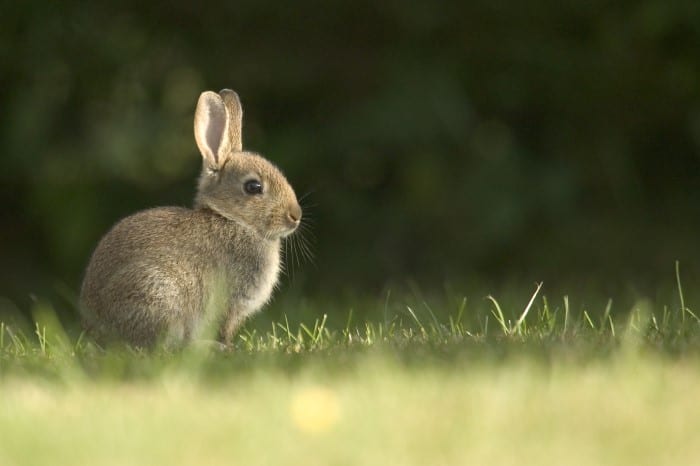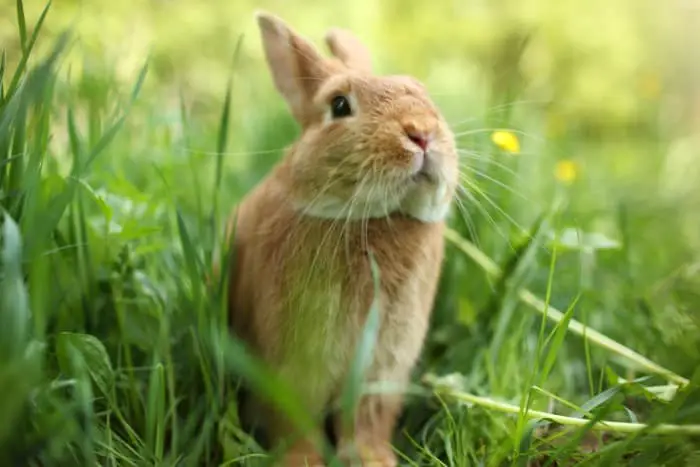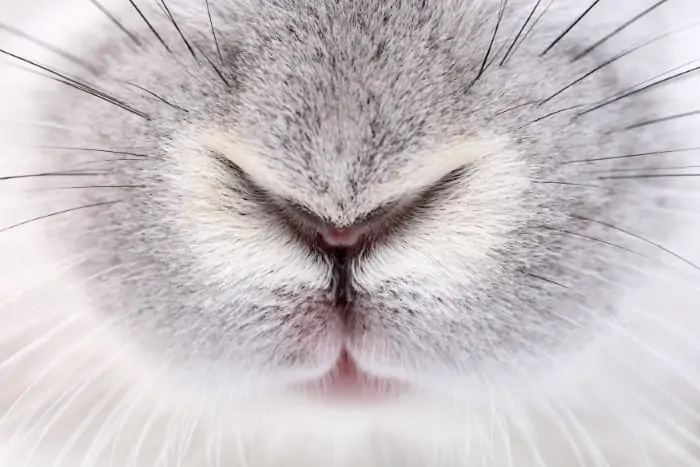As caregivers, it is our responsibility to know everything about our pets’ body language. After all, this is the only way they communicate, letting us know what is going on with them.
While dogs’ language is usually much more expressive, other animals such as rabbits are much more subtle in expressing their needs. Still, we can get to know what they want to tell us through their actions. We can anticipate their needs, predict stressful situations, and make them happier.
A peculiar characteristic that rabbits possess is that they are almost always moving their nose. You must have asked yourself why do rabbits twitch their nose? Is this a way of communication?
There are several reasons why rabbits have this behavior. In this article, we will show you the main reasons.
Why Do Rabbits Twitch Their Nose?
One of the ways that bunnies use to express themselves is by moving their nose. This behavior has several functions, which we will discuss below:
Twitching Increases Their Sense of Smell
Smell and taste are the two most developed senses in a rabbit. The sense of smell is perhaps the principal function that is associated with nose twitching. A rabbit possesses 100 million olfactory receptors. When a rabbit moves its nose, it is activating millions of olfactory receptors. This behavior allows them to perceive different smells more efficiently.
Bunnies use their sense of smell whenever they are curious about something new in their environment and when they need to be cautious. The faster their nose moves, the more information they are getting from your environment. This feature is crucial for their survival as it helps them in two critical situations:
- Finding food: For a wild rabbit, locating food is a matter of life or death. Rabbits trust their sense of smell to carry on this purpose. They can find food by following their sense of smell, even when buried or at great distances. Besides, they can distinguish whether a food is safe to eat or toxic through their sense of smell.
- Detecting predators that may threaten their lives. A wild rabbit remains alert most of the time, and the reason they move their nose quickly is so they can sniff out predators. We can say that they smell danger.

Although a pet rabbit may not be exposed to these needs, they still retain these instinctive behaviors.
To Recognize Other Rabbits or Other Members of the Same Clan
Each rabbit has a unique aroma due to the pheromones which are released by their bodies. Through short and quick breaths, they can recognize others of their species and find out “who” it is or if it belongs to the same clan. They can also distinguish if the other bunny is a male or female or a submissive rabbit or a leader.
To Find Their Way Back Home
Bunnies also use their sense of smell as a guide to finding their way back home. They usually leave their smell impregnated in their burrow or nest so that they can know precisely where they are.
They can also recognize their babies and can distinguish when they are in the territory of rival clans.
To Breathe Easier
Although a rabbit does not need to move its nose to breathe, twitching makes breathing easier. Bunnies cannot breathe through their mouths as we do. In situations that require it, such as running or exercising, they will increase their nose’s movements to expand its nasal passages, increasing air intake through its passageways. Once their bodies go back to rest and their breathing becomes regular, twitching will slow down again.
Control Body Temperature
Another reason why rabbits wiggle their noses is to control their body temperature. Even though a bunny controls its temperature mostly through its ears, the nose can also aid in doing this. In this way, they keep their body temperature cooler. By breathing faster, they can exchange body heat through their airways. That is why on hot days, you may notice that the movement of the nose is faster. This behavior is fundamental because rabbits can easily suffer from heatstroke.
Mating
Bunnies also use their nose to find a female and to be able to determine if she is fertile. This behavior ensures that they continue to reproduce their species.
What Happens if a Rabbit Stops Wiggling Its Nose?
Rabbits are curious animals. They are always investigating everything around them, and the way they must explore is by moving their nose. For this reason, a rabbit always keeps its nose twitching most of the time.
There may be times when this movement becomes slower. This change can happen when the rabbit is more relaxed or has already adapted to its new environment, indicating that its anxiety level is minimal; it feels comfortable in the environment in which it finds itself.
Most often, a rabbit’s nose will stop moving when it is asleep. Checking your bunny’s nose for twitching is an excellent tip to know if a rabbit is sleeping, as many bunnies sleep with their eyes open.
A rabbit can also stop moving its nose but only momentarily in a situation of alarm or confusion, for example, when it hears a sudden loud noise. It is like the rabbit stops all its activities for a second and then reacts, fleeing for shelter.
It is entirely normal for the rabbit to have changes in the speed with which it moves its nose. It all depends on its state of mind or the environment in which it finds itself.
Should I Be Concerned if my Rabbit Moves its Nose Too Fast?
Sometimes you will notice that your rabbit moves its nose faster. It would be best if you learned to recognize these changes to determine whether you should be concerned. These are some of the situations in which you will notice that your rabbit moves its nose much faster:
Curiosity
It is usual for a bunny to move its nose when they are curious about some object or sound, they don’t know because they are merely defining it. A twitching nose indicates that the rabbit is investigating, interested, and looking for something. For example, when they arrive at a new home, they will activate their nose immediately because they want to know everything through their powerful sense of smell in that new environment, full of intriguing scents. Once they have adjusted to the new environment, they will feel calmer, and their nose twitching will slow down.
Nervousness
A frightened rabbit will also move its nose faster than expected. A wiggling nose is one of the ways we can observe to determine how our rabbit feels. If we notice that our rabbit is looking for shelter or hiding and its nose moves very fast, we can determine that it is scared or anxious about something.
We can also rely on how it moves its ears to determine if our bunny is feeling stressed. A stressed rabbit will pull its ears tight and will move them back. In this case, you must try to identify the source of stress. Remember that a rabbit that remains stressed most of the time will develop anxiety, which will negatively affect its immune system.

Physically Activity
As mentioned above, rabbits will move their nose more rapidly when they are running or physically active. This way, they can obtain more air and oxygenate their body more efficiently because, contrary to other animals, they are incapable of breathing through their mouth.
Sickness
The movement of its nose can be of great help in determining if a rabbit is sick. For example, if you notice that your rabbit keeps moving its nose quickly for no apparent reason or in conditions where it should typically be relaxed, this could indicate that it is sick. In these cases, you should pay attention to other signs of illness as well, such as changes in appetite, changes in poop, in their grooming habits, or if their physical activity is as usual. Rabbits have no way of saying that they are suffering from pain, so paying attention to these small details could be extremely important and useful.
Increase in Body Temperature
Bunnies can control their body temperature through their nose. So, if you notice that your rabbit begins to move its nose too fast on a warm day, this could be a sign that its temperature is very high. We should pay close attention to this behavior as rabbits are susceptible to temperature changes and can easily suffer a heatstroke.
There are several ways that you can help lower their temperature, such as by controlling the temperature of the room, putting something cool where they can lie down, or perhaps spraying some water behind their ears.
As you have seen, a rabbit’s nose has fundamental functions. Even though nose twitching is distinctive and even adorable in rabbits, we should keep in mind that its nose is not just there to decorate. We must learn to distinguish their body language to understand our pets’ behavior better and fulfill their needs.

